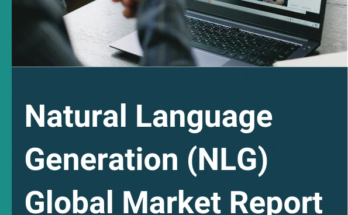Maize Gluten Feed Market reached US$ 6500.00 Million in terms of revenue in 2021, growing at a 5.8% CAGR from 2022 to 2030. Maize Gluten Feed, also known as corn gluten feed, is a byproduct of the corn milling process that is widely used as animal feed. It is derived from the remnants of corn kernels after the extraction of starch, oil, and other components. Maize gluten feed is a valuable source of nutrients and is primarily used as a feed ingredient for livestock, poultry, and aquaculture.
The production of maize gluten feed involves drying the corn gluten meal obtained from the milling process and blending it with other corn milling byproducts such as corn germ meal, corn bran, and steep liquor. This combination results in a high-protein, high-energy feed product that provides essential nutrients to animals.
Maize gluten feed is particularly rich in protein and fiber content, making it a popular choice for animal nutrition. It typically contains around 20-25% protein, which makes it a valuable protein source for ruminant animals, including cattle and sheep. Additionally, it has a moderate fat content and is a good source of carbohydrates, vitamins, and minerals.
The demand for maize gluten feed is driven by the growing global population, increasing meat consumption, and the need for efficient and sustainable animal feed solutions. As the livestock industry continues to expand, there is a rising need for nutritious and cost-effective feed ingredients. Maize gluten feed fits this requirement as it offers a balanced nutrient profile and is a relatively economical option compared to other feed sources.
Nutritional variability: The composition of maize gluten feed can vary depending on factors such as corn quality, processing methods, and blending practices. This variability can make it difficult for feed manufacturers to consistently formulate diets with precise nutrient profiles, leading to potential nutritional imbalances in animal diets.
Transportation and storage: Maize gluten feed is typically bulky and requires appropriate storage facilities to maintain its quality. Transportation logistics can be challenging due to the need for efficient handling and storage infrastructure, especially when large volumes are involved.
Regulatory considerations: Feed regulations and standards vary across countries and regions. Compliance with these regulations, including labeling requirements, quality control measures, and safety standards, can pose challenges for producers and suppliers of maize gluten feed, particularly when operating in multiple markets.
Consumer perceptions and market demand: Consumer preferences and market trends play a significant role in shaping the demand for animal products derived from livestock fed with maize gluten feed. Consumer concerns about genetically modified organisms (GMOs) or the perception of certain feed ingredients can impact market acceptance and demand for maize gluten feed-based animal products.
Environmental sustainability: While maize gluten feed offers environmental benefits by utilizing corn milling byproducts, concerns about the environmental impact of intensive livestock production, including issues related to land use, water usage, and greenhouse gas emissions, may affect the overall demand for animal feed ingredients, including maize gluten feed.
Click Here, To Get Free Sample Report: https://stringentdatalytics.com/sample-request/maize-gluten-feed-market/4478/
Market Segmentations:
Global Maize Gluten Feed Market: By Company
• Duynie Group
• NWF Agriculture
• Southern Milling
• Tereos Starch & Sweeteners
• Gulshan Polyols
• Grain Processing Corporation
• Roquette
• Ingredion
• Cargill
• Tate & Lyle
• Bunge
• Agrana
• Nordfeed
• Deutsche Tiernahrung Cremer
Global Maize Gluten Feed Market: By Type
• Organic
• Conventional
Global Maize Gluten Feed Market: By Application
• Poultry Animals
• Swine
• Others
Global Maize Gluten Feed Market: Regional Analysis
All the regional segmentation has been studied based on recent and future trends, and the market is forecasted throughout the prediction period. The countries covered in the regional analysis of the Global Maize Gluten Feed market report are U.S., Canada, and Mexico in North America, Germany, France, U.K., Russia, Italy, Spain, Turkey, Netherlands, Switzerland, Belgium, and Rest of Europe in Europe, Singapore, Malaysia, Australia, Thailand, Indonesia, Philippines, China, Japan, India, South Korea, Rest of Asia-Pacific (APAC) in the Asia-Pacific (APAC), Saudi Arabia, U.A.E, South Africa, Egypt, Israel, Rest of Middle East and Africa (MEA) as a part of Middle East and Africa (MEA), and Argentina, Brazil, and Rest of South America as part of South America.
Visit Report Page for More Details: https://stringentdatalytics.com/reports/maize-gluten-feed-market/4478/
Objectives of Maize Gluten Feed Market Study:
- Market Sizing and Segmentation: Determine the size of the maize gluten feed market in terms of volume and value. Segment the market based on factors such as product type, end-use industry, and geographic regions.
- Demand Analysis: Analyze the factors driving the demand for maize gluten feed, including its nutritional value, cost-effectiveness, and suitability for various livestock species. Identify key market drivers and growth opportunities.
- Supply Analysis: Assess the production and supply chain of maize gluten feed, including sourcing of raw materials, manufacturing processes, and distribution channels. Identify key players, their market share, and supply capabilities.
- Competitive Landscape: Evaluate the competitive landscape of the maize gluten feed market, including the market share and strategies of major players. Identify key market trends, technological advancements, and barriers to entry.
- Pricing Analysis: Analyze the pricing dynamics of maize gluten feed, including pricing trends, price variations across different regions, and factors influencing pricing decisions. Assess the price elasticity of demand.
- Market Trends and Forecast: Identify current market trends, such as emerging applications, new product launches, and regulatory developments. Provide a forecast of the market’s future growth, opportunities, and challenges.
- Consumer Behavior and Preferences: Understand the preferences and buying behavior of consumers in the livestock industry regarding maize gluten feed. Identify factors influencing their purchasing decisions, such as quality, availability, and price.
- SWOT Analysis: Conduct a SWOT (Strengths, Weaknesses, Opportunities, and Threats) analysis of the maize gluten feed market to identify the internal and external factors that impact the market’s growth and competitiveness.
- Market Entry Strategies: Provide insights and recommendations for market entry strategies for new players or existing companies looking to expand their presence in the maize gluten feed market. This may include market positioning, product differentiation, and distribution strategies.
- Regulatory and Environmental Analysis: Assess the regulatory framework and environmental impact associated with the production, use, and disposal of maize gluten feed. Identify potential risks and compliance requirements.
About US:
Stringent Datalytics offers both custom and syndicated market research reports. Custom market research reports are tailored to a specific client’s needs and requirements. These reports provide unique insights into a particular industry or market segment and can help businesses make informed decisions about their strategies and operations.
Syndicated market research reports, on the other hand, are pre-existing reports that are available for purchase by multiple clients. These reports are often produced on a regular basis, such as annually or quarterly, and cover a broad range of industries and market segments. Syndicated reports provide clients with insights into industry trends, market sizes, and competitive landscapes. By offering both custom and syndicated reports, Stringent Datalytics can provide clients with a range of market research solutions that can be customized to their specific needs.
Contact US:
Stringent Datalytics
Contact No – +1 346 666 6655
Email Id – [email protected]




